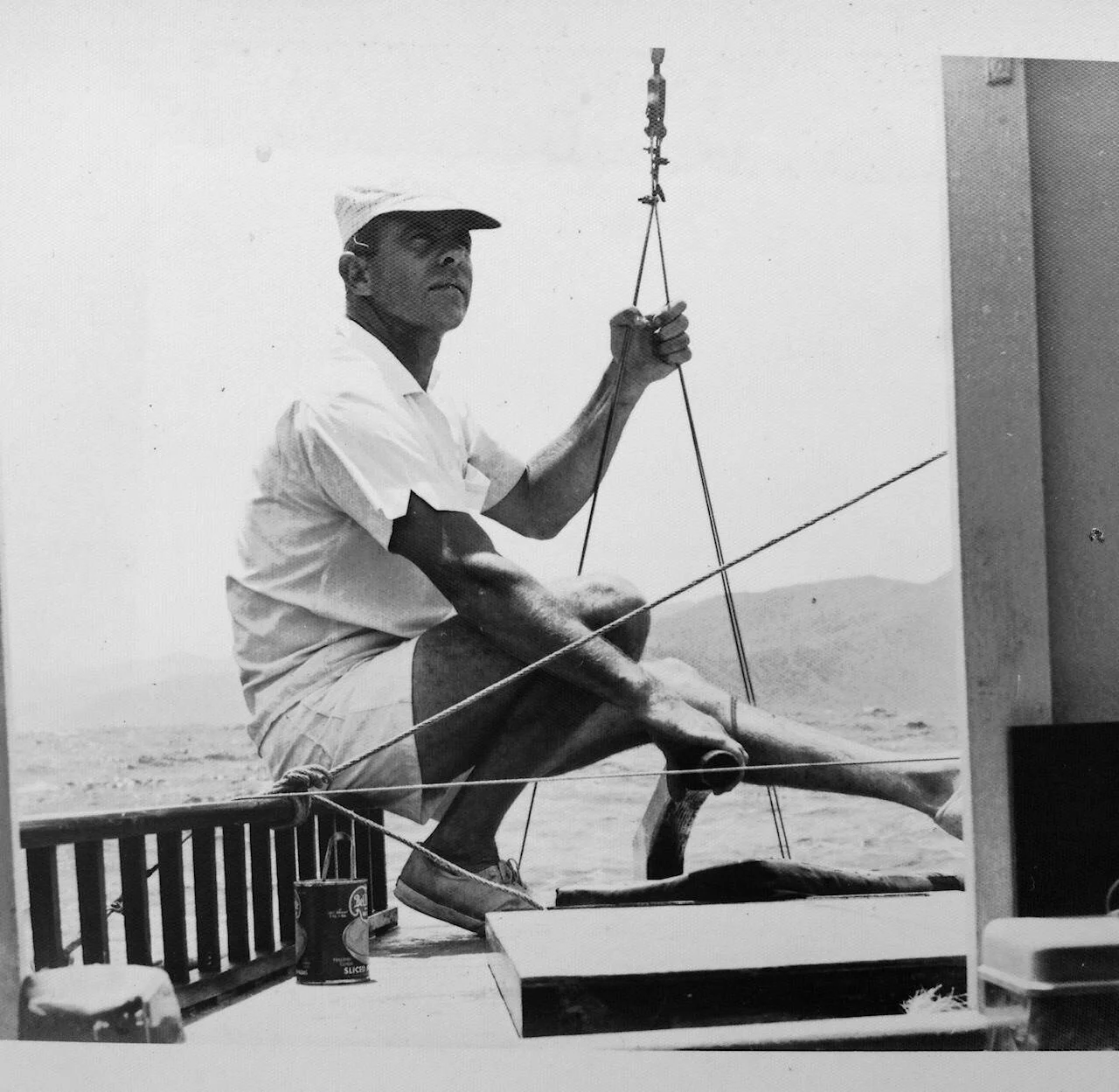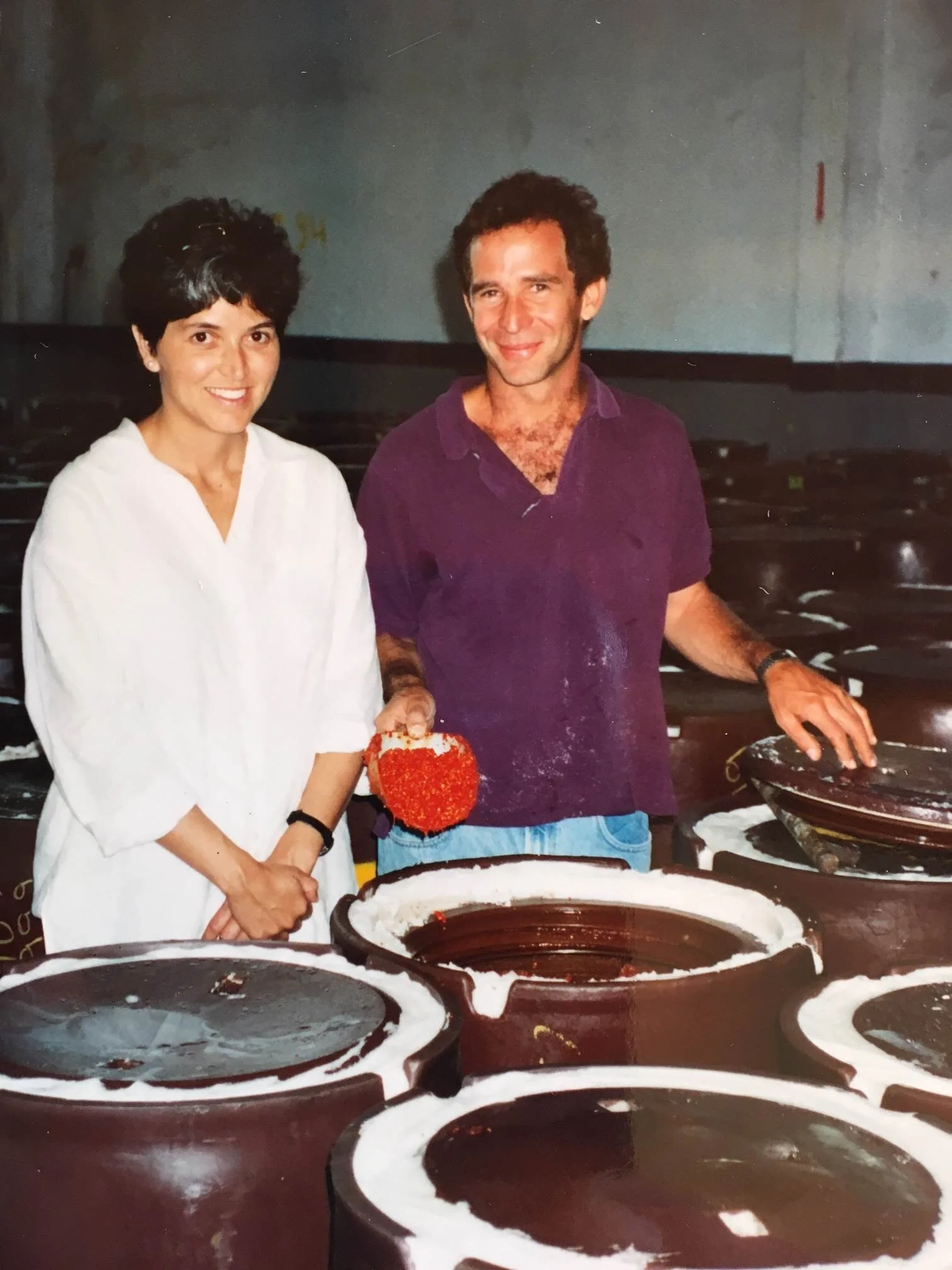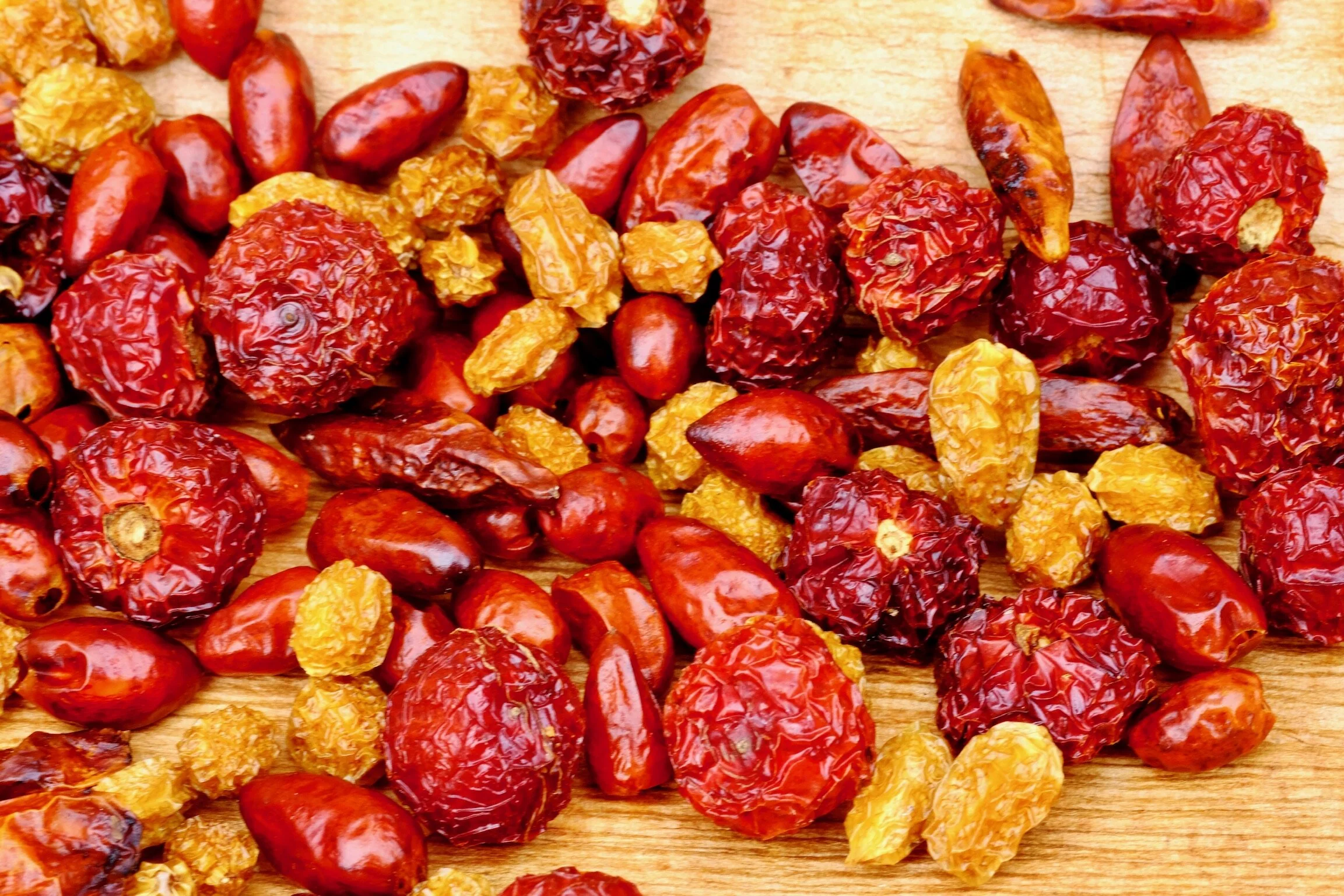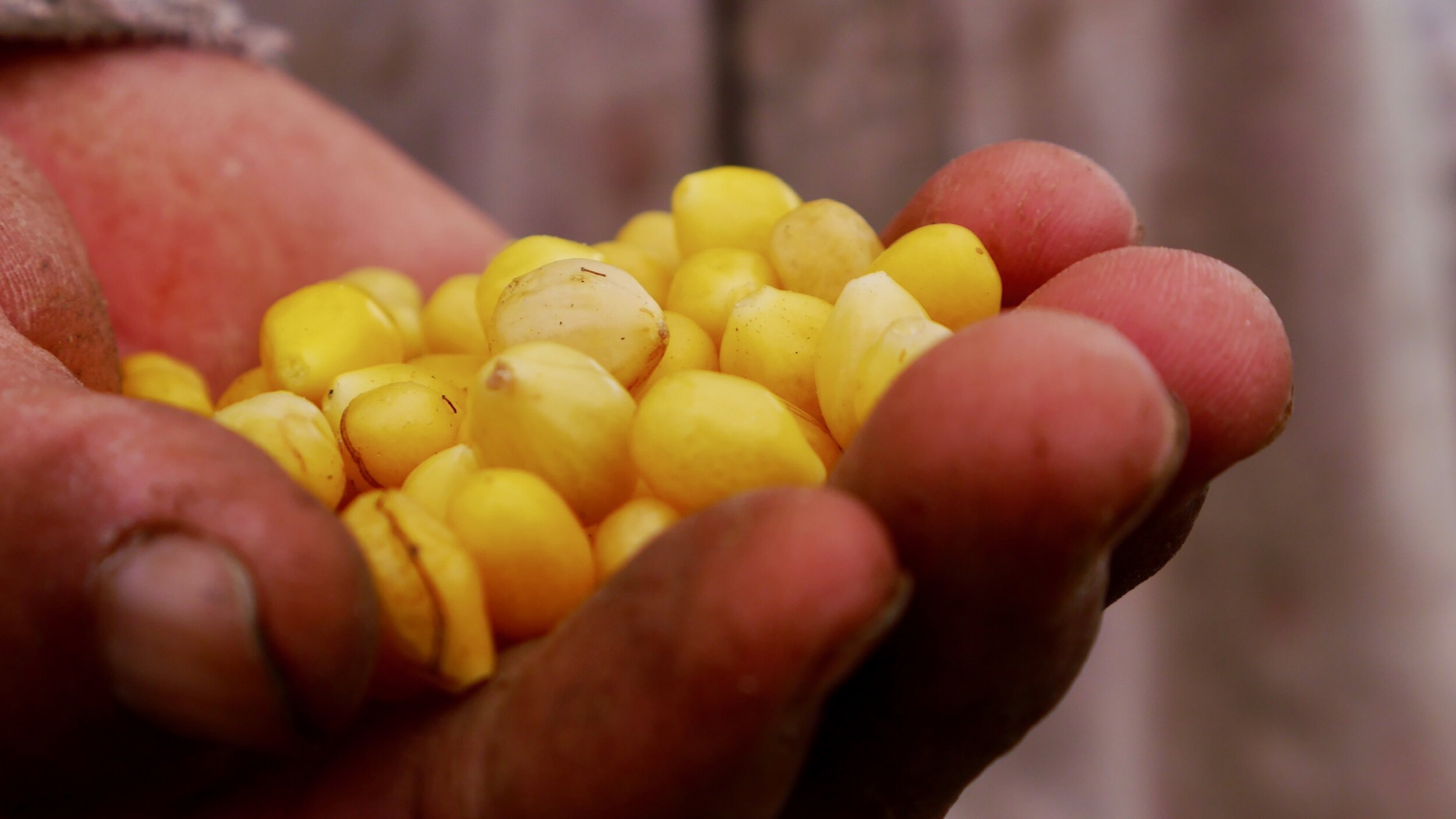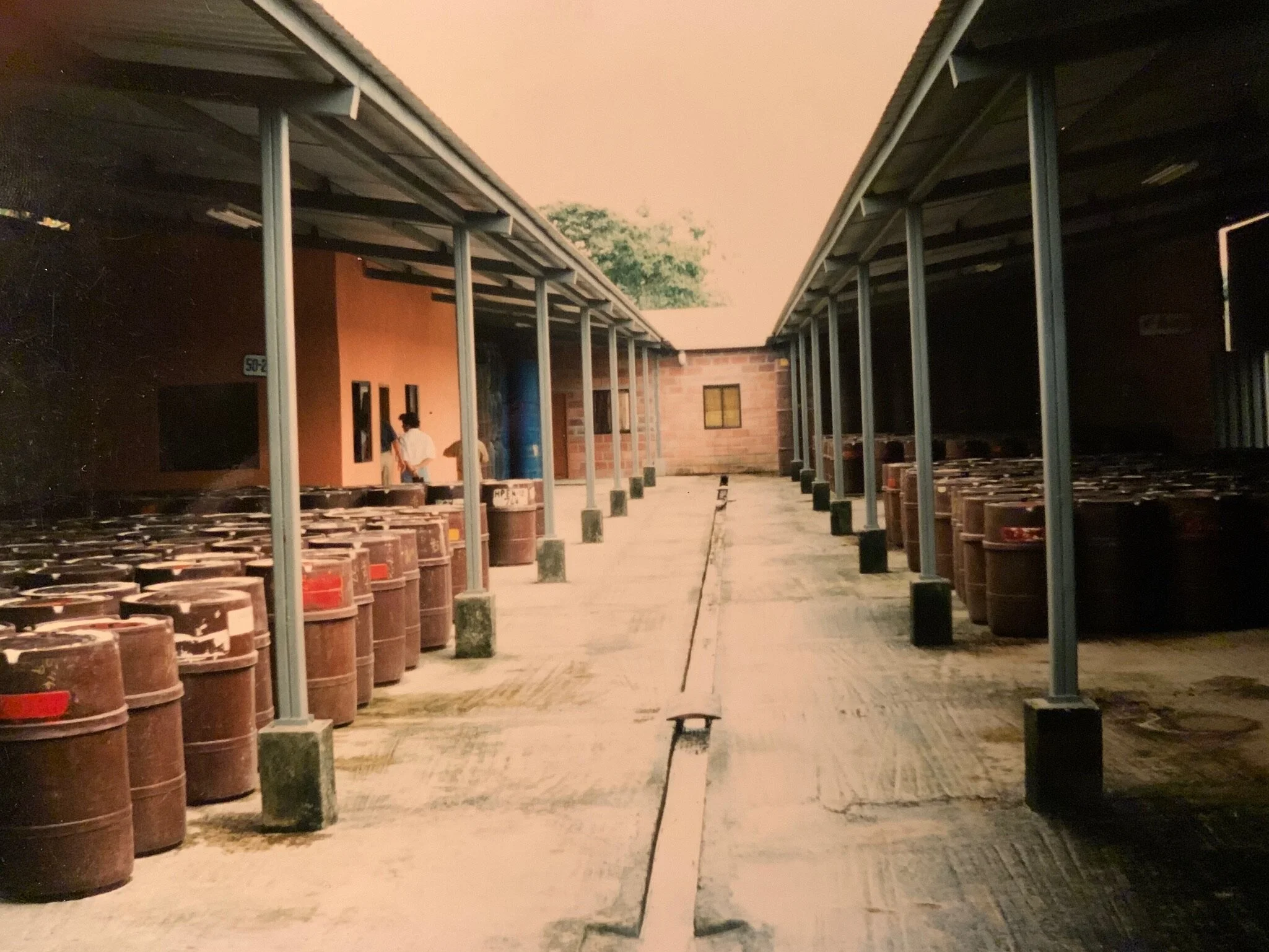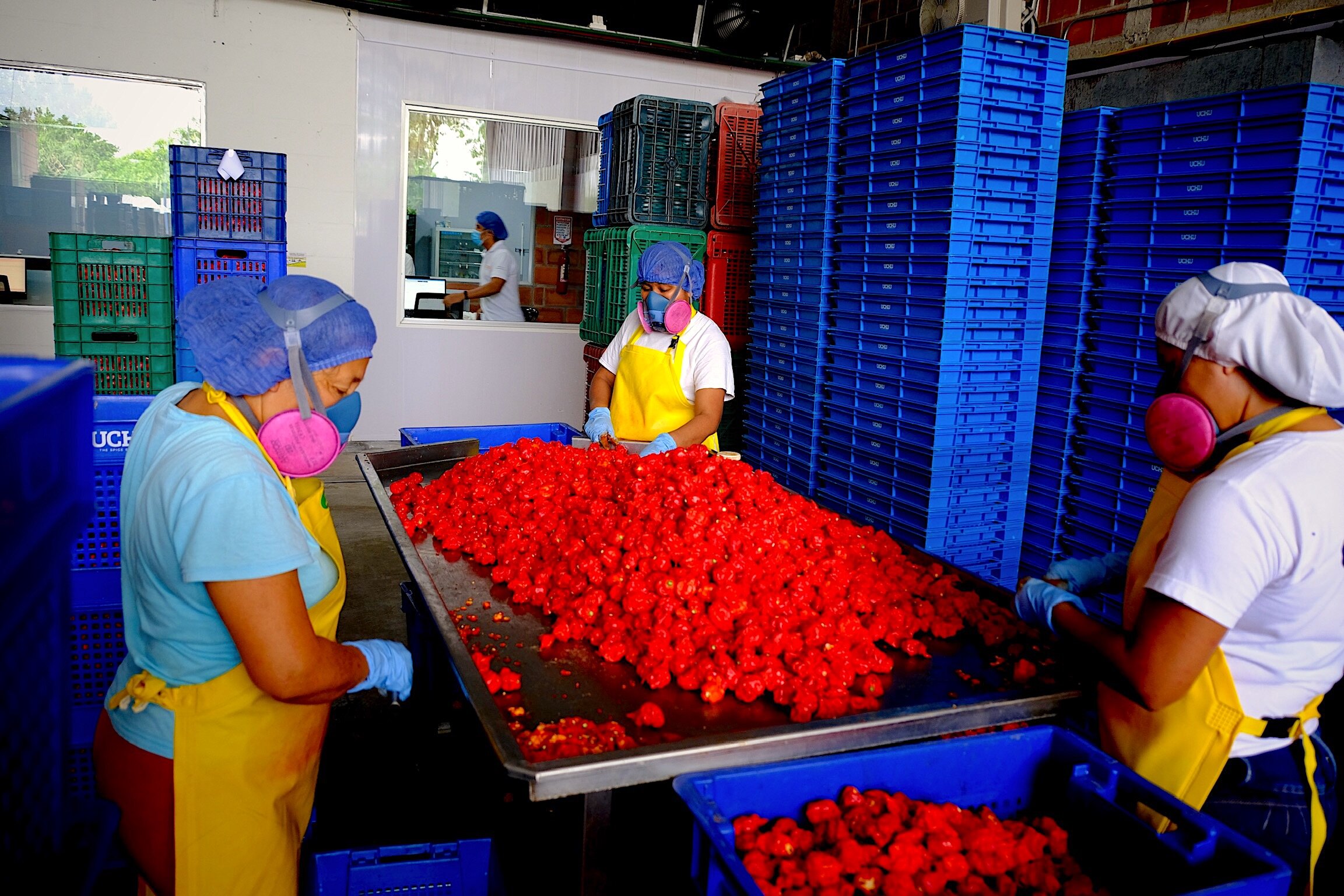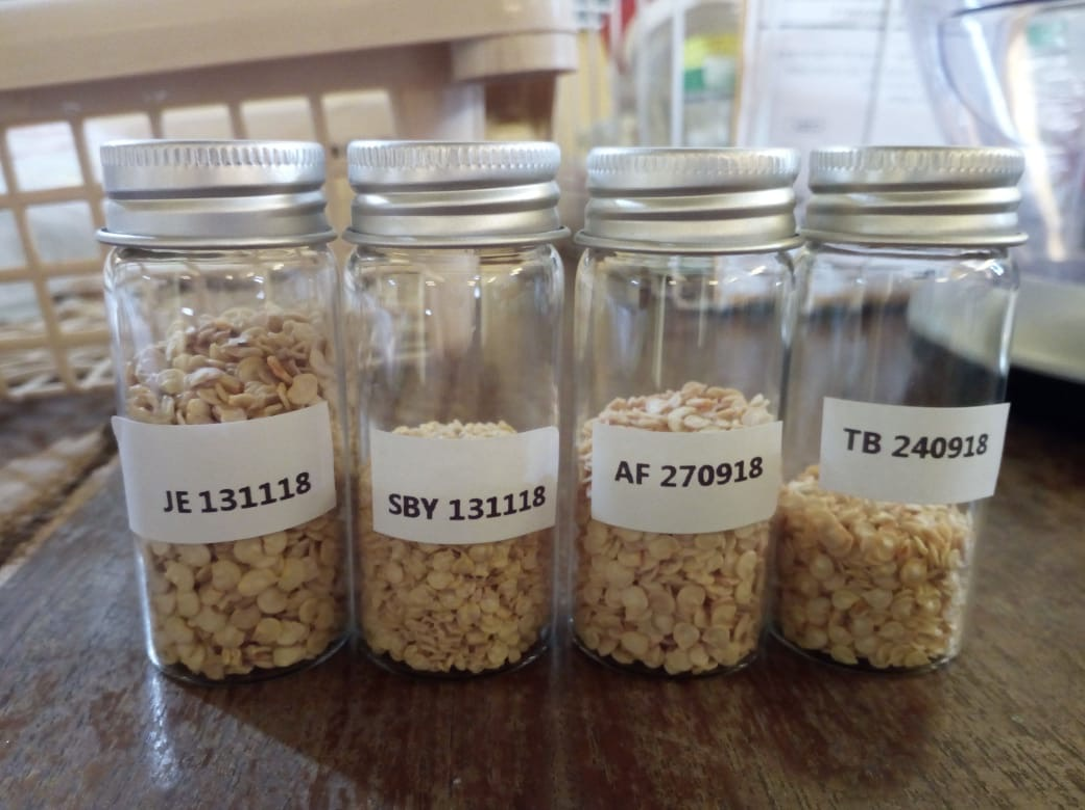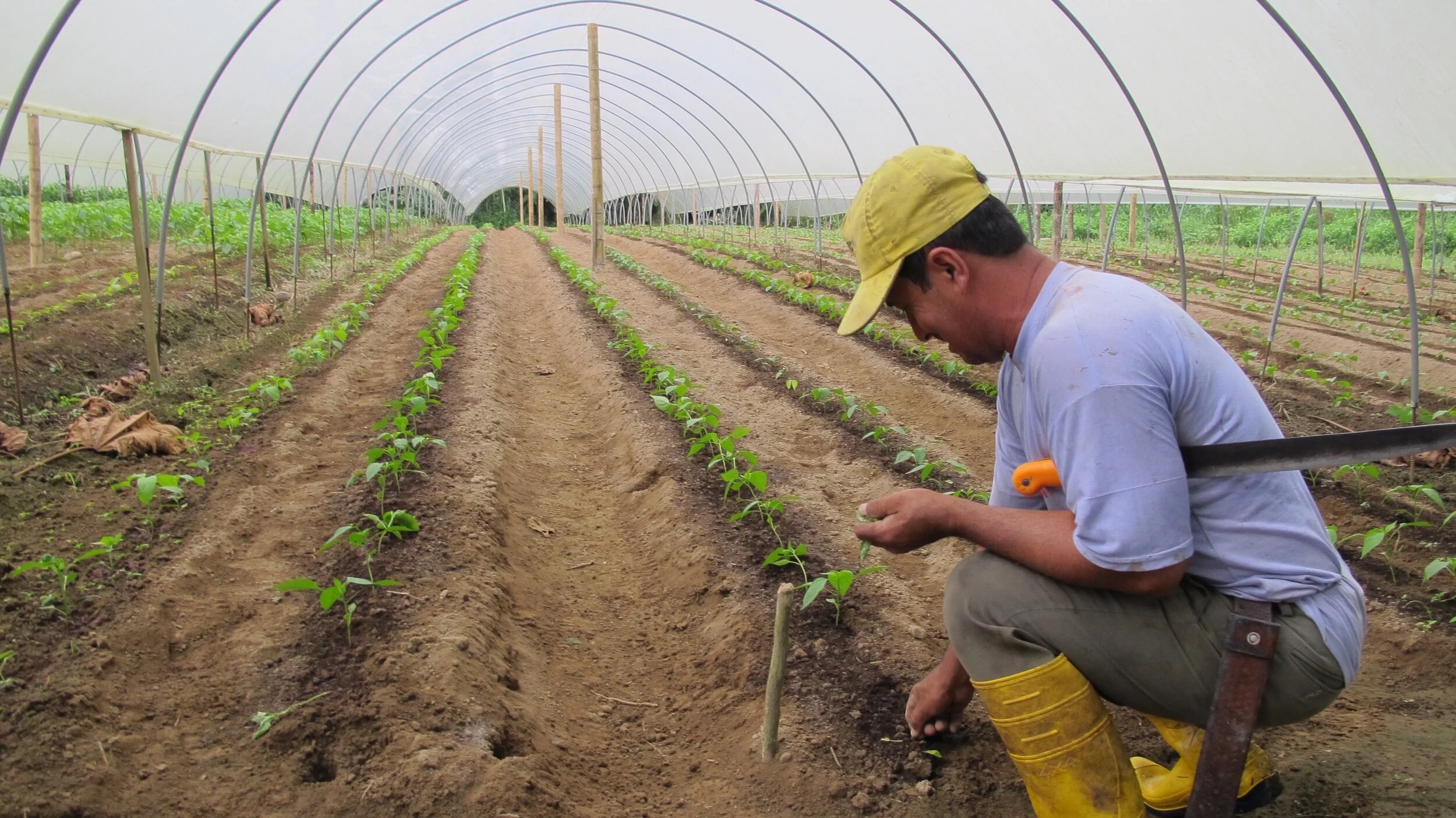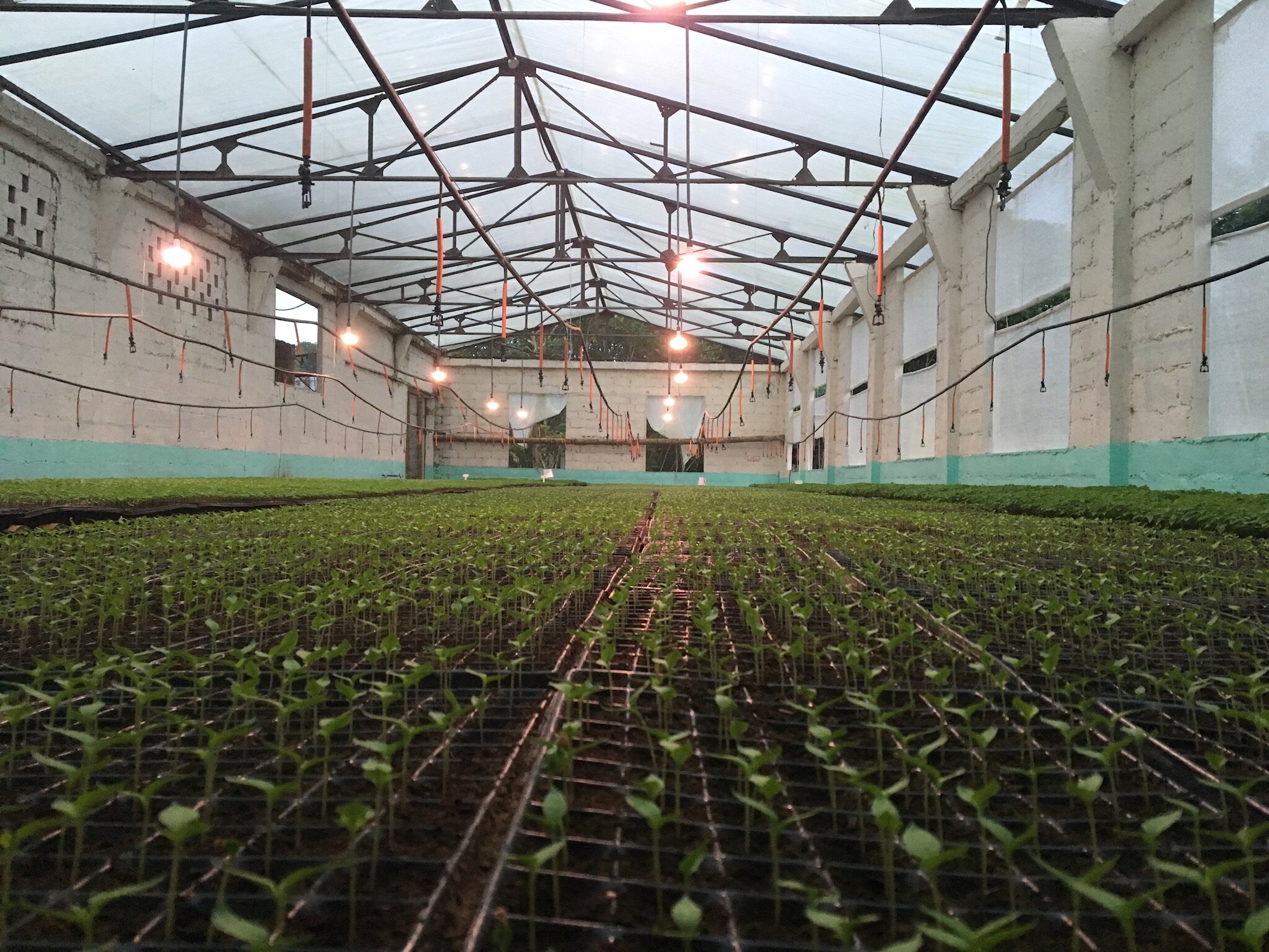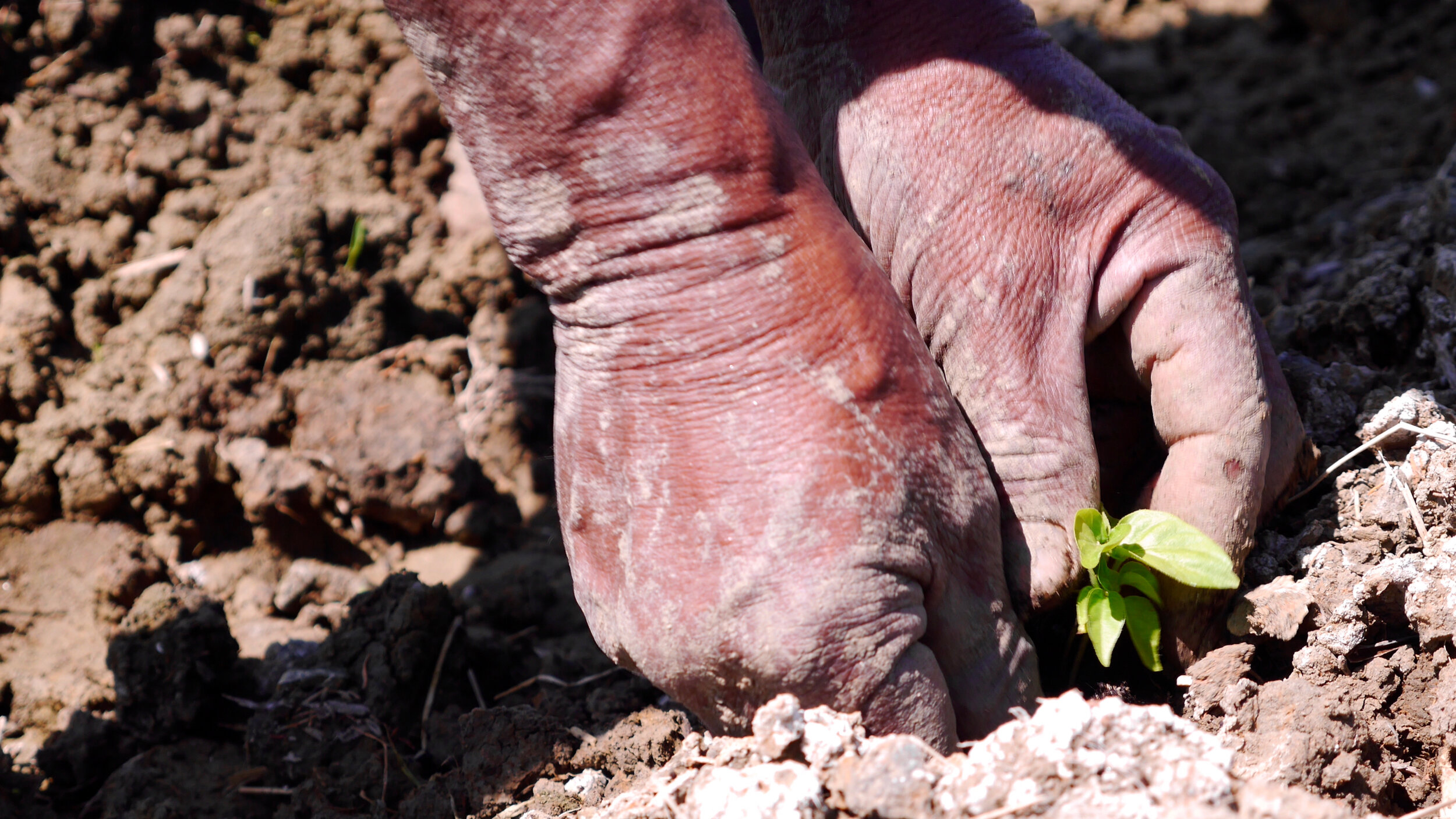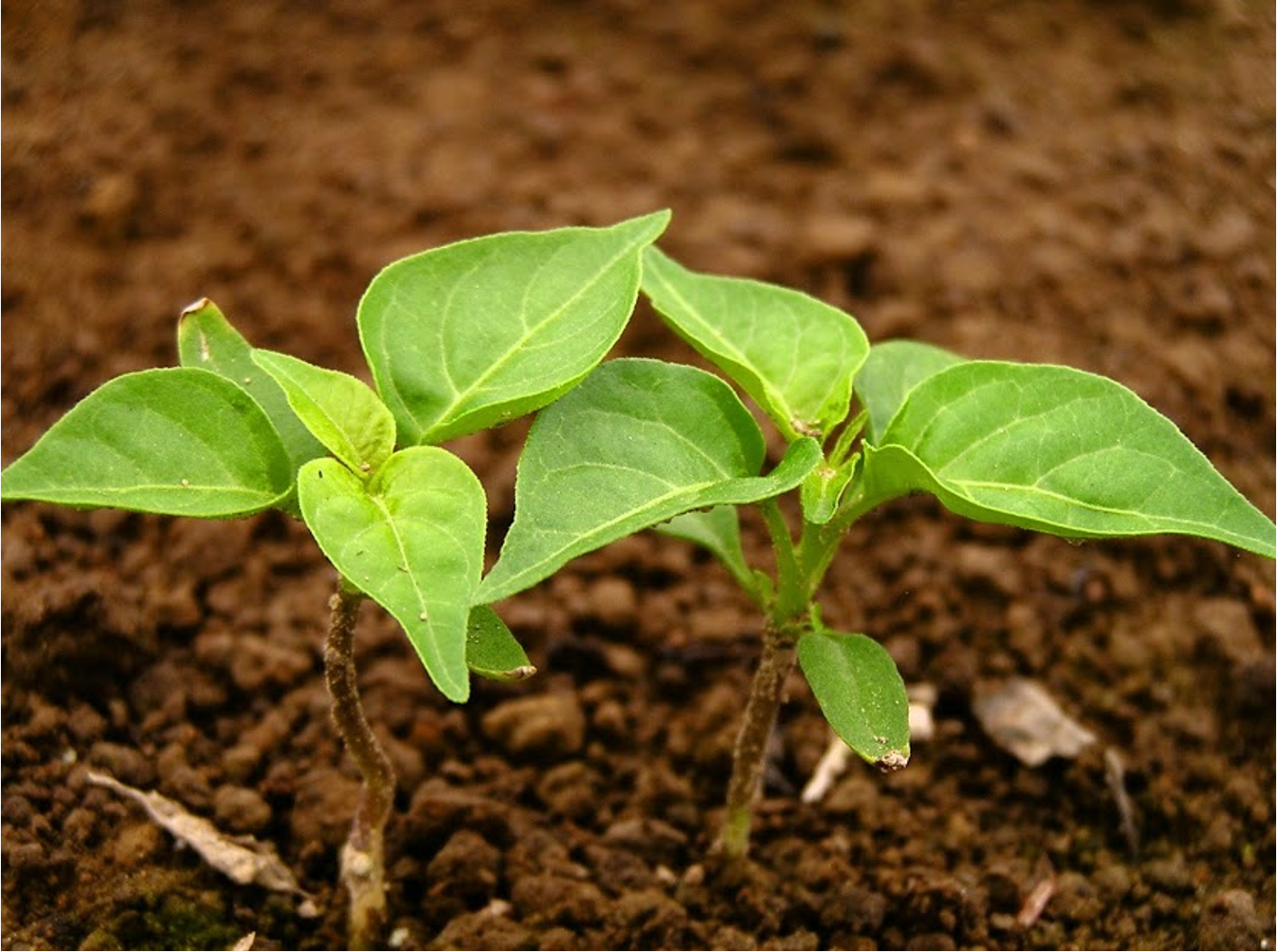UCHU Spice’s roots, stems, leaves, and fruits: where we come from, what we stand for, who we are, and who we strive to be
UCHU’s roots: responsible sourced peppers that tell a story
Humans have consumed hot peppers for as long as we’ve cooked our meals. The earliest evidence of domesticated Capsicum strains has been found in southwestern Ecuador, dating back over 6,000 years ago. At UCHU Spice, we love adding spice to our meals just as much as our ancestors did. We continue to crave the bite, the subtle kick, the heat, and the aroma hot peppers bring to any food preparation.
Hot peppers have transformed and redefined culinary traditions worldwide and have become an integral component in many cuisines. As chili lovers ourselves, we hope to bring spicy experiences to people all over the world and expose them to the myriad of colors, shapes, sizes, and flavorful possibilities chili peppers offer the human palate.
Like all companies and people, we have a story to tell. Ours is spicy and travels across continents and generations. We would love to share it with you, read on to discover UCHU’s story:
Tabasco plants live for many months or years, but their seeds will outlive you: UCHU’s beginning
The Baker family has produced chilies for three generations. With a family business dating back over 50 years, one could say capsaicin is embedded in their DNA. Coming from a long line of family farmers, George Baker, a WWII veteran who studied Animal Husbandry in Louisiana, was contracted by Nelson Rockefeller to start a cattle breeding project in Venezuela in 1967.
George E. Baker Jr. The man who started everything - Venezuela 1964
As the United State’s population and demand for food supply increased after WWII, many companies strove to increase their production. Such was the case for McIlhenny CO, situated on Avery Island, Louisiana. The company was interested in increasing its Tabasco hot pepper supply, and Venezuela was the perfect place to make such an investment at the time. Mr. Baker, who was always up for a challenge, took a leap of faith and began growing and producing chili peppers for the McIlhenny Company in his new home.
As worldwide hot pepper consumption and demand grew, Mr. Baker experimented and developed farming techniques and seed selection processes. He even developed one of the main Tabasco seedlines, which are still used to this day! He continued growing chili peppers in different regions and countries, eventually making it to Colombia where he shared the agricultural practices and technologies learned through many years of experience with smallholder farmers.
Hot peppers in Europe are grown in Peru: UCHU goes global
In the late ‘80s, the demand for distinctive chili varieties with differing flavors and pungencies took off at a global level. By then George’s second son Phillip – an agronomist – and his life and business partner Imelda - a biologist - were looking to grow the hot pepper business into Ecuador and start their own project. In 1993 they established Proají and began farming and processing different varieties of hot peppers and creating product lines such as mashed, dried, and brined peppers.
Imelda Echavarria and Phillip Baker, Proaji’s first years of production - 1994, Santo Domingo de Los Colorados, Ecuador
Looking to further expand their chili offerings, Proají opened a sister operation in Peru named Pizca Foods in 2003. Peru introduced the family business to additional hot pepper varieties which are now grown and exported across the globe.
In 2003: our motto came to life: ‘one-of-a-kind hot pepper products from one-of-kind hot pepper varieties.
Despite their geographic distance, both companies applied the over-half-century-old knowledge gained in Venezuela, developed in Colombia, and implemented in Ecuador and Peru to reach their customers oceans away. By combining these agricultural practices with processes focused on Quality Control and Assurance, Proají’s state-of-the-art facility now boasts an FSSC 22000 Certification.
Before: Proaji’s first production center - 1994
After: Proaji’s production center today
In 2018, Proají and Pizca became one under UCHU Spice. The word uchu means hot pepper in Quechua, the most widely spoken indigenous language in South America. The name highlights UCHU´s geographic and cultural origins, as we are at the heart of where all chilis come from. In addition, it honors our dedication to social and economic development through smallholder farmers and local communities.
A Scorpion’s bite will always burn: what’s up next for UCHU
At UCHU, we are creators and innovators, so our mission is constantly adapting to a changing world. In 2018, we launched our Seed Lab, a research and development model farm, designed to preserve and improve our local hot pepper varieties, keeping their diverse characteristics and wide range of flavors alive. We recognize that like other commercially grown crops, many unique pepper varieties are disappearing due to monoculture and industrial agricultural practices. Peppers that were essential to local communities’ food customs are currently being phased out by mass-market production that relies upon unsustainable production techniques.
At our Research Center, we are tirelessly working to ensure that our local hot pepper varieties keep their original characteristics.
So, what makes us different from other producers and processors out there? Our company philosophy is based on what we like to call our three P’s. By doing what is best for People and Peppers, we are also doing what is best for our Planet. How do we accomplish that? By empowering smallholder farmers – many of which are women.
We know you care where your ingredients come from, we do too!
Our company is tied to the idea of sustainable growth and economic development. That is why instead of mega-farms, we work alongside a network of over 300 farming families to provide training in sustainable farming techniques and Good Agricultural Practices. This allows us to restore soil nutrition, build farms more resilient to climate change, and boost yields so farmers can earn more and improve their livelihoods. This integrated chili supply chain now benefits thousands of farmer family members both in Peru and Ecuador.
Phillip Baker sharing farming techniques with our affiliated smallholders farmers
We can confidently say that at UCHU Spice we responsibly source and process hot peppers that tell a great story: we are your Spice Solution!
Our clients produce one of a kind spicy food, we produce one of a kind hot pepper.
What are you waiting for? Discover UCHU and our hot pepper products.


